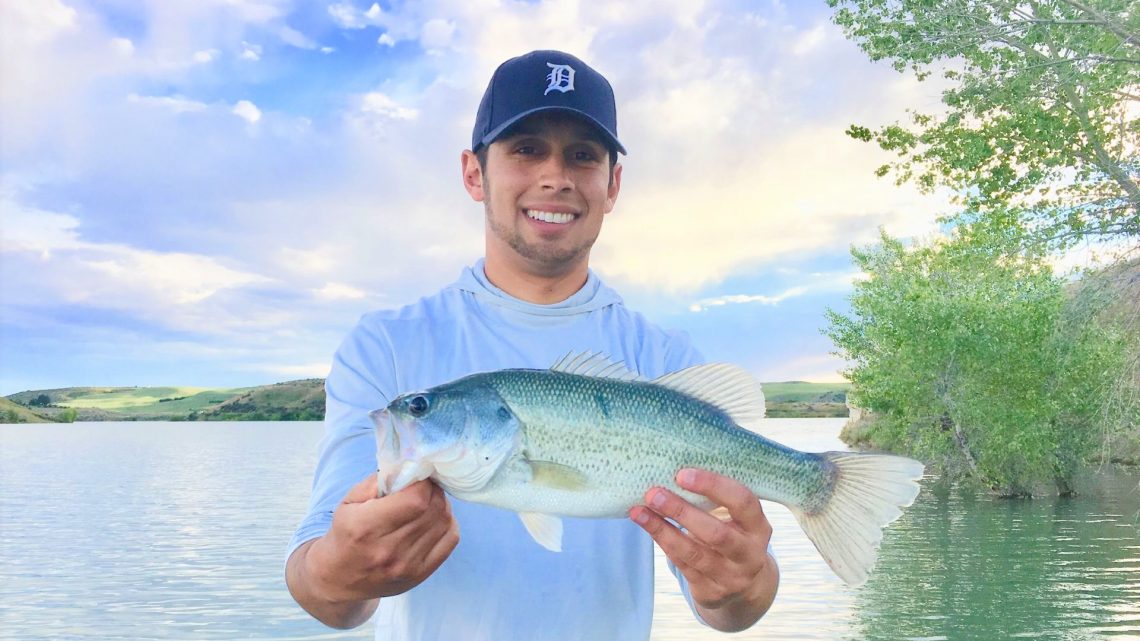
Tight Lines 208 is dedicated to helping people become better anglers through education. The Cram Session is designed to give readers a crash course on a specific fish species or local fishery. Want to see a topic covered? Email tightlinesboise@gmail.com with your suggestion!
The largemouth bass is America’s favorite sportfish—and my personal favorite, too. Let’s learn a little more about this awesome species.
Largemouth are common throughout North America. They thrive in warm climates, but do very well here in southern Idaho. Interestingly, studies show largemouth in cooler climates have slower growth rates, but live longer lives. The average lifespan for an Idaho largemouth is 10-12 years, but large specimens are likely teenagers! This is why I recommend releasing big bass. It takes a long time to grow one in Idaho. The current state record (10.94 pounds) has stood for more than 75 years!
Largemouth are ambush predators. They hide in cover like fallen trees and weed beds and use short, explosive attacks to capture their prey. Items on the menu include smaller fish like bluegill and crappie, crayfish, mice, frogs and ducklings. Really, a largemouth will eat anything that fits in its oversized jaws!
Largemouth love warm water and vegetative cover. In our region, they are found in lowland lakes like Lowell. Largemouth also inhabit many smaller lakes, as well as most of our local ponds. You can catch a few in reservoirs like C.J. Strike and Brownlee, but those are largely dominated by smallmouth bass. Idaho Fish & Game doesn’t grow bass in hatcheries—our populations are all naturally sustaining (although bass were originally transplanted to Idaho many decades ago).
Because of their aggressive hunting habits, largemouth can be caught using a wide variety of lures. Some of the best options include soft plastic creatures (worms, crayfish, frogs, etc.), spinnerbaits, crankbaits, jigs and noisy topwater lures. It may seem counterintuitive, but try fishing close to weeds, trees, bushes, and other structure bass can use as cover. Weed-resistant lures are definitely helpful!
Largemouth bass are distinguished from their smallmouth cousins by their emerald green coloration (smallmouth are more of a brownish green) and the single horizontal stripe running down their side (smallmouth have vertical tiger stripes). Spring through fall is the prime window for Idaho largemouth, which become lethargic and more difficult to catch during the winter months. Right now, in fact, is a great time to fish for largemouth!
If you want to learn more about catching largemouth in Idaho, check out my All About That Bass class. Have fun chasing those bass! Tight lines!